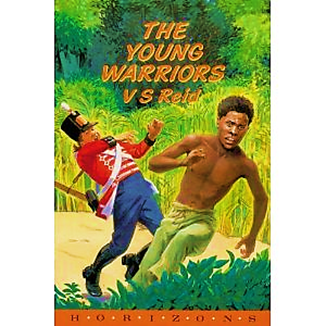Written in
response to an online discussion involving music in worship following a video
presentation on the same subject. See the following link to view this video: https://www.youtube.com/watch?v=ug_I9O1sHGI
Greetings
Excellent
discussion Rodney…. It really got me thinking about the issue of music in
worship. A few points to consider, which I think could add to the discussion.
One, we
were admonished in the Psalms to "make a joyful noise unto the LORD"
(Ps. 98:4 & Ps. 100). This is quite self-explanatory.
Two,
after Pharaoh and his army were destroyed in the Red Sea, Moses and the Israelites
sang a new song unto the LORD, and Miriam, sister of Moses and Aaron, along
with the women, sang and danced with timbrels (tambourines) in hand (Exodus
15:1-21). Moreover, in the last days of Moses’ life, God told Moses to write a
song, commonly called, "The Song of Moses", both as a prophetic
witness of God’s faithfulness and of Israel’s future apostasy (Deuteronomy
32:1-43). Thus, singing here had both a solemn and prophetic purpose.
Three,
King David rejoiced before the LORD with all his might at seeing the return of
the Ark of the LORD to Jerusalem. All Israel celebrated, as David did, with
instruments (2 Samuel 6:1-6 & 12:23). Note David’s response to Michal’s
criticism of his seemingly undignified conduct in worshiping God, "It was
before the LORD" (vs. 21), and not done unto men. Nor was it done out of
selfish motives.
Remember,
brother, when the apostle Paul admonished the churches to worship in psalms,
hymns, and spiritual songs in Ephesians 5:18-19 and Colossians 3:16, he pointed
out, among other things, that "singing and making melody to the Lord with
your heart" can be done in various styles, methods, compositions, and
arrangements. Hence, the mention here of psalms, hymns, and spiritual songs. No
one style, method, or genre of praise and or worship can be reasonably considered
the only true way of worship and praise to God. Indeed, our Lord, Christ Jesus,
enlightened the Samaritan woman to the fact that, "true worshipers will
worship the Father in spirit and truth" (John 4:21-24). This should be our
only spiritual litmus test of what is acceptable in worship to God Almighty.
I assure you my friend; this will remain an ongoing debate for some time to come. Allow the Holy Spirit, the Spirit of Truth (John 16:13, Romans 8:14-15 & Galatians 5:1, 10-26), to be your eternal guide.
I assure you my friend; this will remain an ongoing debate for some time to come. Allow the Holy Spirit, the Spirit of Truth (John 16:13, Romans 8:14-15 & Galatians 5:1, 10-26), to be your eternal guide.
If the
concern is about the style or genre of music and use of instruments in worship,
then this will vary based on cultural differences. Not all cultures are the
same. Therefore, what is acceptable will have to be based upon the principles
of the Holy Scriptures and not on our individual cultural biases. Furthermore,
singing or music is different from prophesying, preaching, evangelizing, and teaching.
Music is a universal language, expressing feelings and ideas through the medium
of sound, with or without instruments.
Paul, in
his comparison of using instruments in battle or to make music with the then contentious issue of tongues versus prophesy (1 Corinthians 14:7-8), reminded
the early church to strive for clarity, understanding, peace, order, and for
that which edifies the church (vs. 9-12, 26, 33 & 40).
The caution
must always be to avoid making the same catastrophic mistake Lucifer, an Archangel
who dwelled in the very presence of God, made (Isaiah 14:11-15 & Ezekiel
28:1-19). Here we see that Lucifer’s heart was filled with pride after
considering his own beauty.
As for
expressiveness in worship, it is virtually impossible to worship, whether God
or idol, without expressing some degree of feeling. God also expresses
feelings. God can have differing feelings towards His creation (Genesis 6:5-8, Psalm
147:11, Isaiah 12:3, Jeremiah 8:18-9:3, Hosea 11, Zephaniah 3:17 & Romans
2:29). Expressing feelings also make us human. As creatures made in His image
and likeness (Genesis 1:26), we too share this special characteristic with our
Creator.
Additionally,
consideration should be given to those biblical references, which speak of
worship in Heaven (Revelation 4:6-11, 5:8-14, 15:2-3 & 19:5-7). Note, the intensity,
reverence, loudness, thunderous proclamations, exhilaration, and passion
involved. Not to mention the repetitious nature of specific declarations of
adorations unto God, such as those mentioned in Revelation 4:6-11. Are the
repeated words and actions of the four living creatures and the twenty-four
elders, who worship God day and night with the same words and actions, to be
considered vain repetition? Not if God is pleased with it. I believe worship
involves lifestyle devotion and service to God and does not always involve
music and or singing.
Four,
one should also take into account Paul’s caution to those believers who seek to
pass judgment on fellow believers over disputable matters (Romans 14, 15:1-13).
While the apostle here was speaking specifically of food and appointed days of
worship, I believe the principles addressed by Paul can also be applied to the
issue of music as well. What God wants for His church is for us to be united in
love. This was Christ’s solemn High Priestly-Prayer-of-Oneness for His church
(John 17). That we should be one with each other, even as we strive to be one with the
Godhead (the Triune God), is a divine priority.
Finally,
let us respond to the Lord our God with praise for His mighty acts and greatness,
with singing, dancing and instruments as the psalmist exhorts us (Psalm 150). Yes,
without contradiction, let us praise and worship the LORD in spirit and truth.
Amen.
OOW
2017














